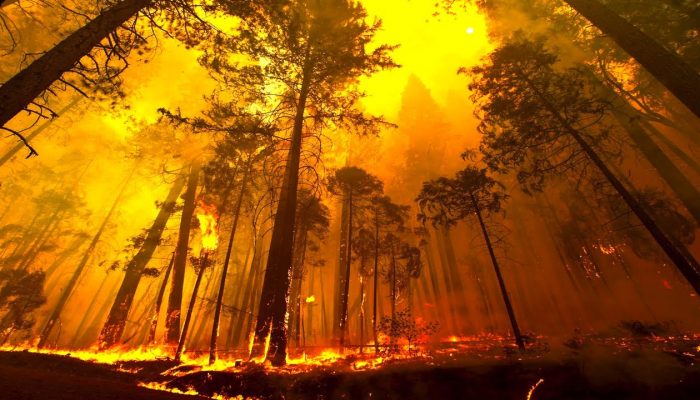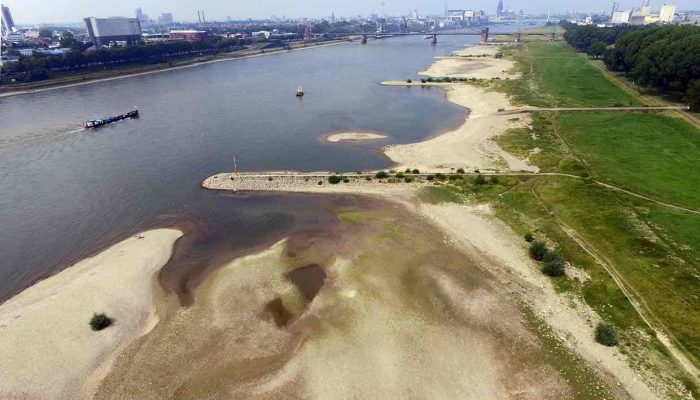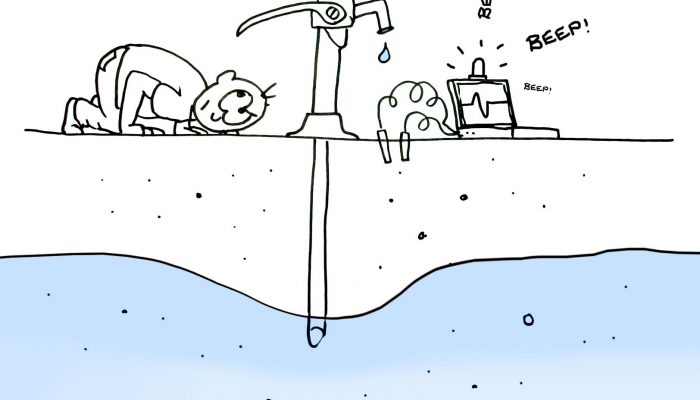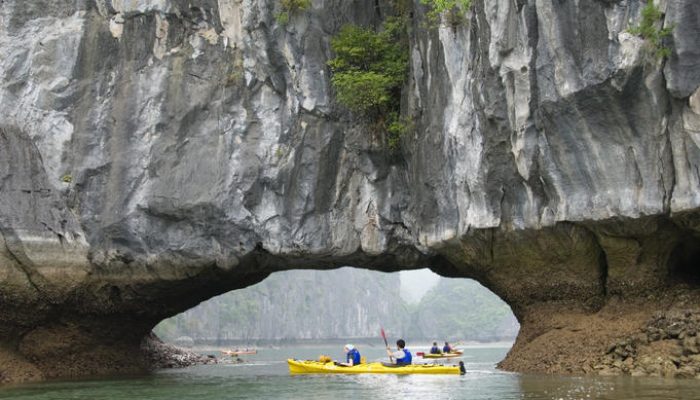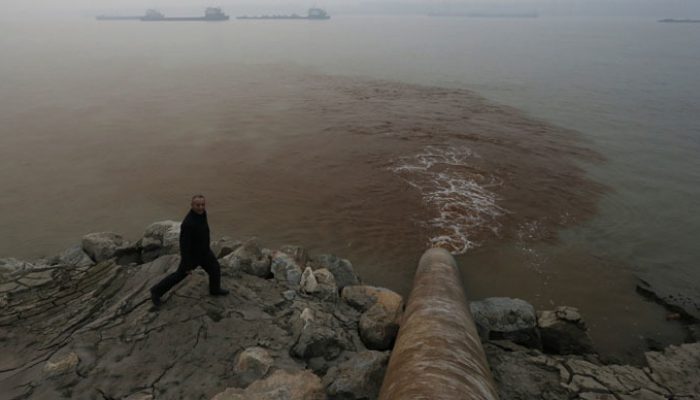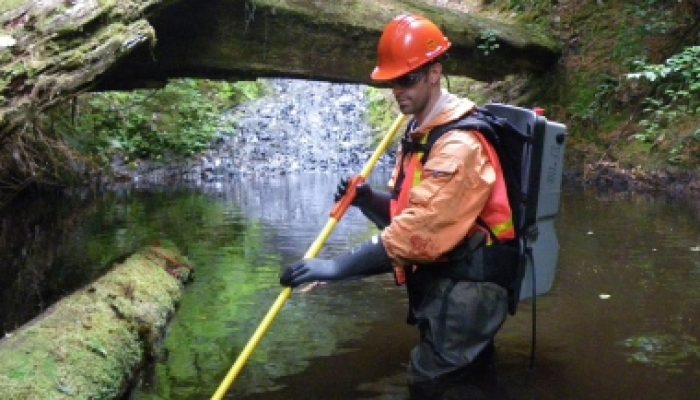Post by Andy Baker, Professor researching groundwater, caves, past climate, organic carbon and more at the University of New South Wales, in Australia. __________________________________________________ We often come across items that glow after being exposed to ultraviolet light. Fluorescent stickers can be bought for the ceilings of bedrooms; fluorescent hands on analogue clocks and watches; flu ...[Read More]
Fire and groundwater
Post by Andy Baker, University of New South Wales The effects of fire on the surface environment are clear to see. Landscapes are coated in ash. Intense fires can destroy all vegetation and alter soil properties. Less intense fires destroy just the surface leaf litter, grasses and shrubs. Grass fires can be fast moving, destroying buildings and threatening lives. Intense fires can even form their ...[Read More]
Squeezed by gravity: how tides affect the groundwater under our feet
Post from the Conversation, by Gabriel C Rau, Ian Acworth, Landon J.S. Halloran, Mark O Cuthbert When returning from a swim in the ocean, sometimes it seems as though your towel has moved. Of course, it’s just that the water line has shifted. The natural rise and fall of the ocean at the beach is an excellent demonstration of gravitational forces exerted by the Sun and the Moon. Although the tidal ...[Read More]
Monitoring groundwater drought without measuring it
Post by Anne van Loon, University of Birmingham You might remember that the summer of 2015 was extremely dry in large parts of Europe (Figure 1), leading to crop losses, wildfires, drinking water supply deficiencies, and reductions in energy production and navigation (Van Lanen et al., 2016), whether you experienced it yourself or read about it in the newspapers. Based on incomplete information th ...[Read More]
Global fossil groundwater resources—the grandkids like hanging out with the grandparents!!!
Post by Scott Jasechko, University of Calgary Groundwater is the world’s largest family of fresh and unfrozen water, and its members range from young to old. There are toddler groundwaters recharged more recently than the year ~1960. Our earlier research showed that these modern groundwaters make up only a small share of global groundwater stocks (Ref. 1 and Water Canada). But what of ancient ‘fos ...[Read More]
Musical groundwater?
Post by Kevin Befus, University of Wyoming I don’t mean to get your hopes up, but keep them up there. I’m not talking about recording the sonorific excitement that is groundwater flow. And, I’m not talking about the squeak of a pump handle, the gurgling of a spring, the grumble of a generator, or the roar of a drill rig. Rather, I want to share with you some songs that reference groundwater in one ...[Read More]
Of Karst! – short episodes about karst
Episode 1 – A different introduction to karst by Andreas Hartmann, Lecturer in Hydrology at the University of Freiburg Usually, textbooks or lectures start with the theoretical background and basic knowledge of the topic they try to cover. Writing my first contribution to the Water Underground blog I want to take advantage of this less formal environment. I will introduce karst as I and many othe ...[Read More]
WTF of the WTF method
by Tara Forstner, University of Victoria I recently wrote a term paper for one of my graduate classes on the limitations of the water table fluctuation (WTF) method, and I have to say, WTF! Techniques using groundwater level fluctuations as a means of calculating recharge are very common. With observation well hydrographs and precipitation data, this method can be applied quite simply, requiring n ...[Read More]
Deep challenges: China’s ‘war on water pollution’ must tackle deep groundwater pollution pathways
by Matthew Currell, School of Engineering, RMIT University, Australia As part of its recent ‘war on pollution’, the Chinese Central Government released a major policy on water pollution control and clean-up, called the ‘10-point water plan’ in 2015. The plan aims to deal once and for all with China’s chronic water quality problems. China’s water quality deficiencies became widely recognised around ...[Read More]
What is a hydrogeologist?
Hydrogeologists are a diverse group, in part because we come to this discipline from so many different paths. We come from different academic programs in engineering, geological sciences and environmental sciences. These differences in backgrounds create a diversity of perspectives, which enriches hydrogeology and allows for dynamic collaborations. Engineers and geophysicists are known for brin ...[Read More]


